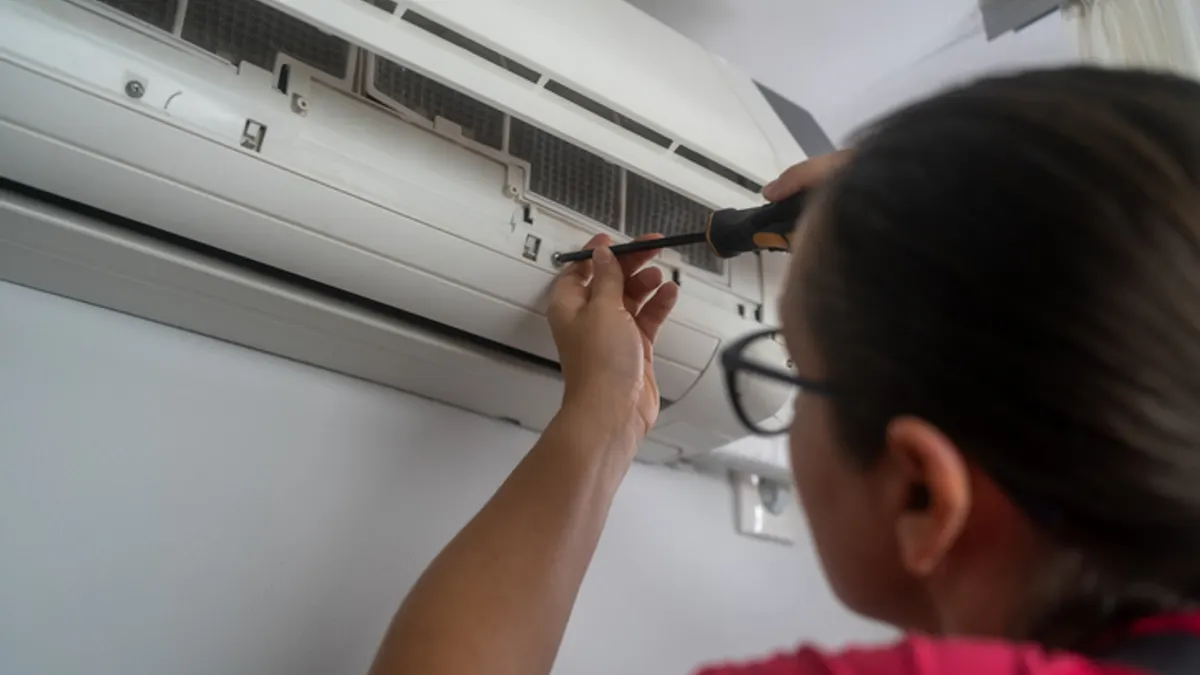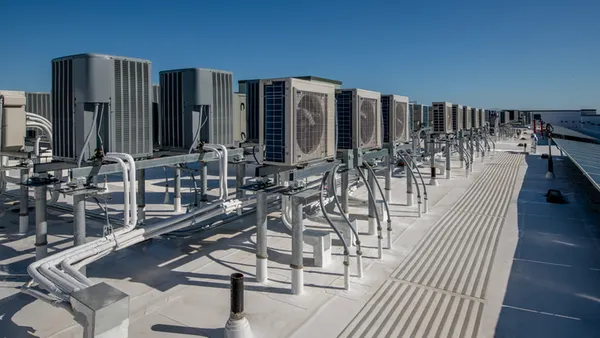Dive Brief:
- Akila, a company that produces “digital twins” for building management and sustainability optimization, formed a strategic partnership with Deloitte to offer a decarbonization software solution for their shared clients, Akila announced Wednesday.
- Akila builds digital twins, or virtual recreations of physical objects, and centralizes building management data to help companies understand things like their energy use, greenhouse gas emissions, internal environmental quality and more.
- The partnership was spurred by the increase in ESG-related disclosure regulations and will give customers access to Akila’s building data as well as Deloitte professionals who can help with analysis or strategic plans, according to the press release.
Dive Insight:
The market for digital twins is expected to grow more than tenfold between 2023-28, according to an estimate by Markets and Markets.
Virtual copies of physical objects, which give businesses greater flexibility to simulate operations for things like supply chain and facilities management, was a $10 billion market in 2023 and is expected to reach $110 billion by 2028, according to the business intelligence research firm. Akila said it has made digital twins of more than 100 million square feet of built environment.
Akila Chief Sustainability Officer Mark Bawtree said in the press release that the partnership is “a significant step forward” in the software company’s goal “to drive sustainability in the built environment through data-driven insights and strategic guidance.”
“By combining Akila’s advanced digital twin technology with Deloitte’s service offerings, we can help organizations across the United States to take decisive action toward reducing their carbon footprints, optimizing energy consumption, and enhancing operational efficiency,” he said.
Akila said its real-time data monitoring and benchmarking will provide clients access to comparative analysis and forecasting tools that can be used to keep track of their ESG and sustainability goals. The digital twin platform will allow customers to experiment with their building data and simulate how capital projects will have future impacts on their energy, emissions and company value before deciding to invest, per Akila.
Companies that improve their building management have an opportunity to increase their asset value and reduce their energy use, according to Nathan Florio, the leader of Deloitte’s sustainability, climate and equity real estate team. Florio said in the release that the partnership will allow the two companies’ shared clients to “transform their built environments into more sustainable and efficient assets.
U.S. companies are facing upcoming climate regulations like the Securities and Exchange Commission’s climate-risk disclosure rule, the European Union’s Corporate Sustainability Reporting Directive and others, both domestically and internationally. Though the SEC rule is currently stayed, pending legal challenges, and non-EU companies have until 2026 to comply with the CSRD, this delay has largely not slowed companies’ preparation for compliance.
Erin Martin, a partner at Morgan Lewis, recently told attendees at an ESG Dive event to “not sit and wait for the courts to decide.” Martin, who previously spent over a decade at the SEC’s Division of Corporation Finance, said companies “need to start preparing now” to comply with the growing landscape of disclosures.
A recent Deloitte survey of business leaders at companies with at least $500 million in revenue found that nearly all respondents — 98% — meet quarterly to discuss sustainability goals, while half of the 300 respondents reported they were investing in new resources to enhance the reporting and measurement of their greenhouse gas emissions.












